
The journey of Siklab Rizal began with an ambitious idea to participate in the annual Shell Eco-Marathon competition, proposed by their adviser, Engr. Rafael A. Dimaculangan and Engr. Raymond Joseph Meimban. The team comprised students of Bachelor of Science in Electronics Engineering and former officers of the JRU Electronics Engineering League (ECEL), each bringing a unique set of skills to the project. This initial phase was crucial as they assigned roles, responsibilities, and laid out general plans for the future. This alignment ensured that everyone was focused on their shared goal: to bring their energy-efficient car, Ibarra, to life. It was here that they truly began to embody “Husay Rizal”.
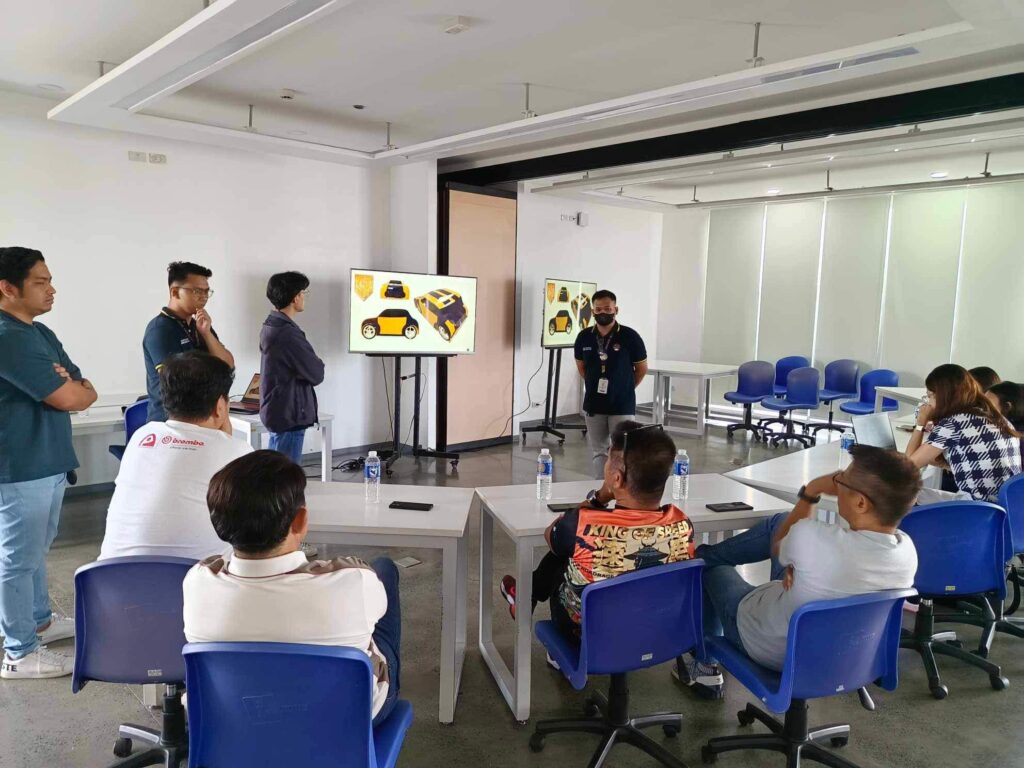
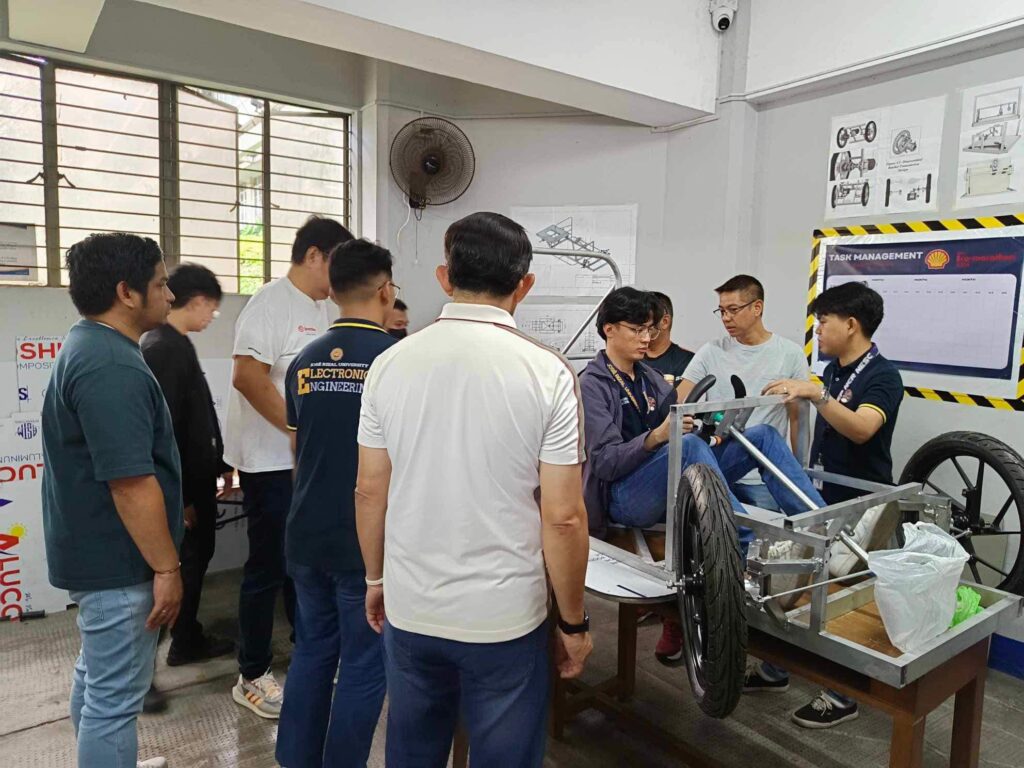
Research and Planning
Under the guidance of their advisers, Engr. Rafael A. Dimaculangan and Engr. Raymond Joseph Meimban, the team embarked on extensive research about the competition and the concept of energy-efficient car designs. They studied materials, technologies, and analyzed winning designs from previous competitions to understand key strategies. This meticulous research and planning phase helped them create a solid project plan and timeline, considering their limited resources and budget constraints. This phase was marked by the pursuit of “Husay Rizal”.
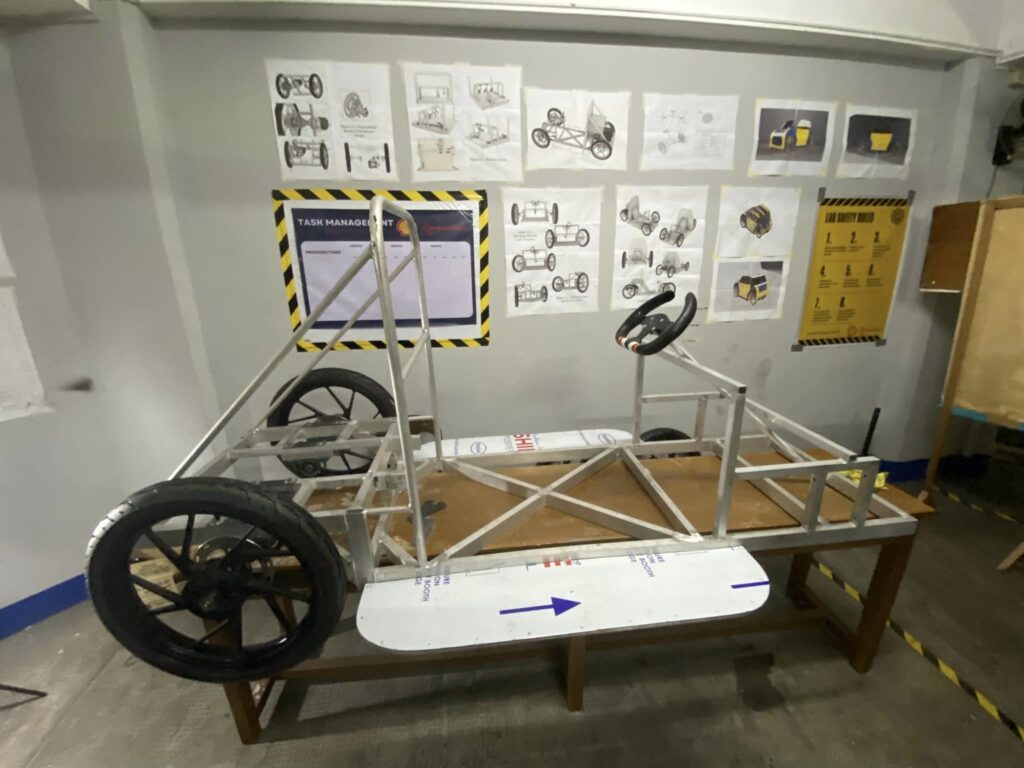
Concept Design
The team moved forward with the design phase, creating detailed 3D models to ensure their design met the competition’s rules for energy efficiency. They utilized CAD software to optimize aerodynamics, weight, and overall efficiency of Ibarra. This phase was iterative, involving constant feedback and improvements, with consultations from advisers and peers to ensure feasibility and innovation. By the end of this phase, they had a well-defined design ready for prototyping.
Prototyping and Testing
During the prototyping and testing phase, the team fabricated Ibarra’s chassis and body, encountering real challenges along the way. Building the initial prototype allowed them to test their ideas and identify flaws in their design. This phase provided essential experience in adapting and overcoming problems. They faced issues with sourcing materials, assembling parts, and conducting initial tests at Tarlac Circuit Hill, where significant problems, particularly in the transmission and electrical systems, were addressed through teamwork and perseverance.


Final Build
After overcoming the challenges during the testing phase, the team built the final version of Ibarra. This phase required complete teamwork and precision to ensure that Ibarra was competition-ready. They implemented elements to enhance efficiency and reduce weight, continuously recording outputs to fine-tune performance. They also showcased Ibarra during CSE Week, demonstrating his capabilities and inspiring other students. This phase culminated in a vehicle that embodied their collective efforts and innovative spirit.

Pre-Event Preparation
In the final days before the event, the team, led by their administrative engineer, focused on logistics to ensure a successful run in the competition. They organized travel documents, packed tools and equipment, and conducted final briefings to ensure everyone was clear on their responsibilities. This meticulous preparation minimized last-minute issues and allowed them to focus on the competition. During this time, they also met the school president, Dr. Vicente K. Fabella, who gave his utmost support to the team.
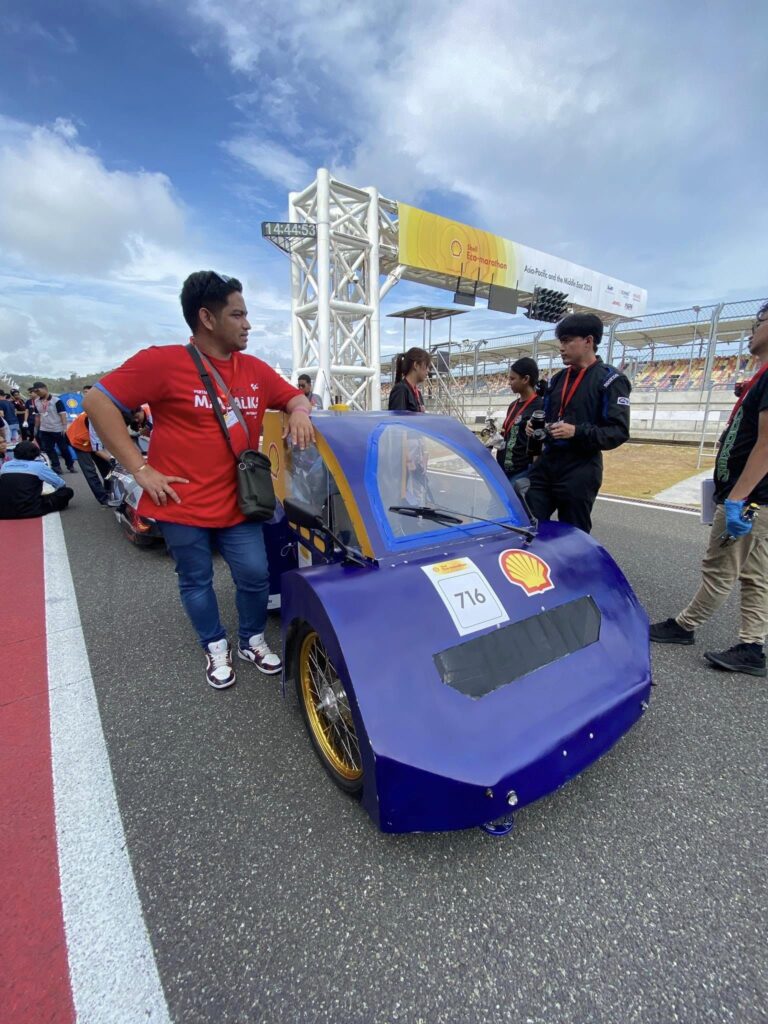
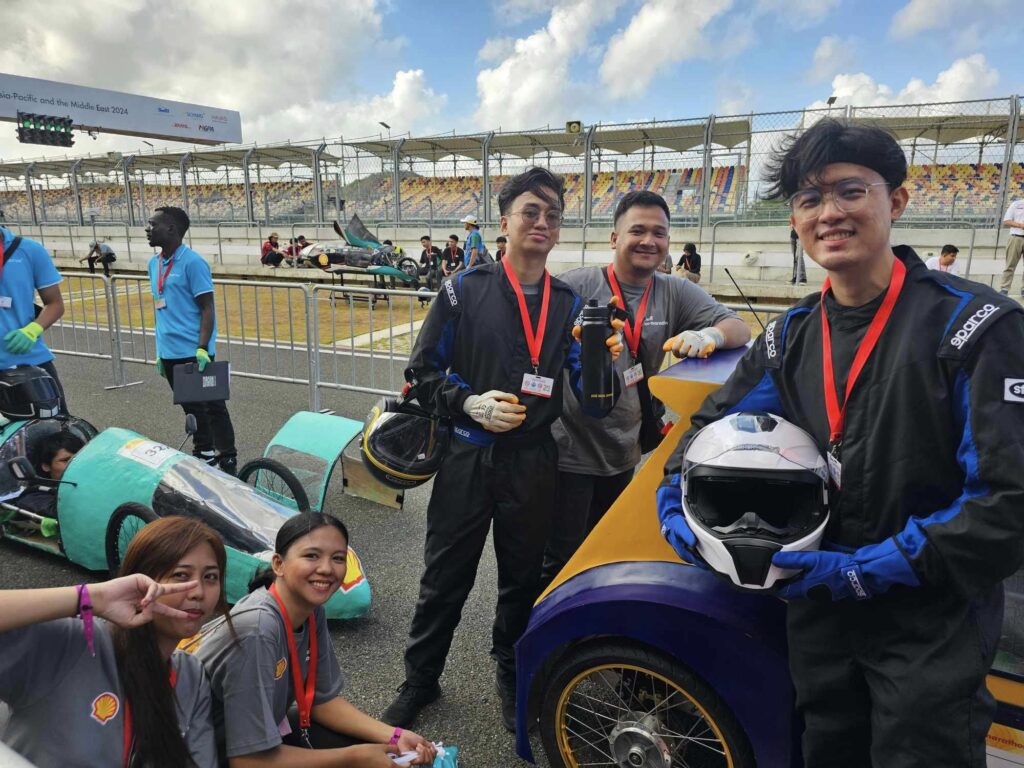
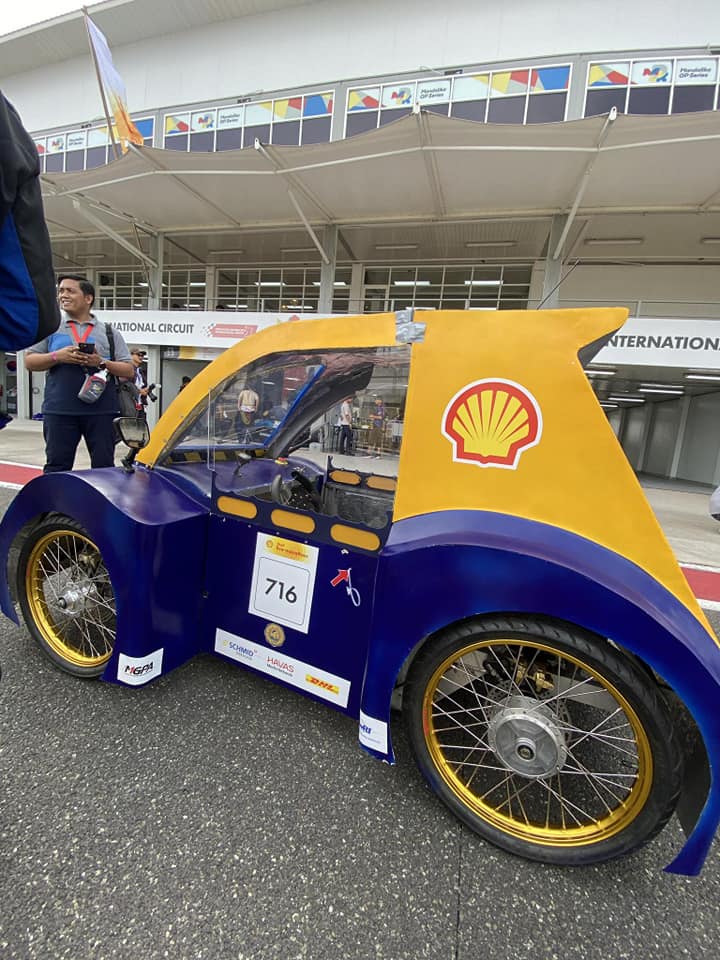
The Event
At the Shell Eco-Marathon event, the team prepared Ibarra for technical inspections, which they successfully passed. They presented Ibarra, participated in races, and shared their journey with other teams from different countries. The event provided an opportunity to learn from and collaborate with other teams, enhancing their overall experience. Their participation in the races tested Ibarra’s performance and the team’s coordination under pressure, making it a thrilling and educational experience that validated their hard work and dedication.

What’s next for Siklab Rizal?
After the event, the team reflected on their experience, celebrated their achievements, and discussed the future of Siklab Rizal. They reviewed their performance, gathered feedback, and identified areas for improvement. This reflection was crucial for planning future projects and ensuring continuous improvement. They celebrated their journey, recognizing the hard work and dedication of each team member, and laid out plans for future competitions, setting new goals to build on their successes and address the challenges they faced.
